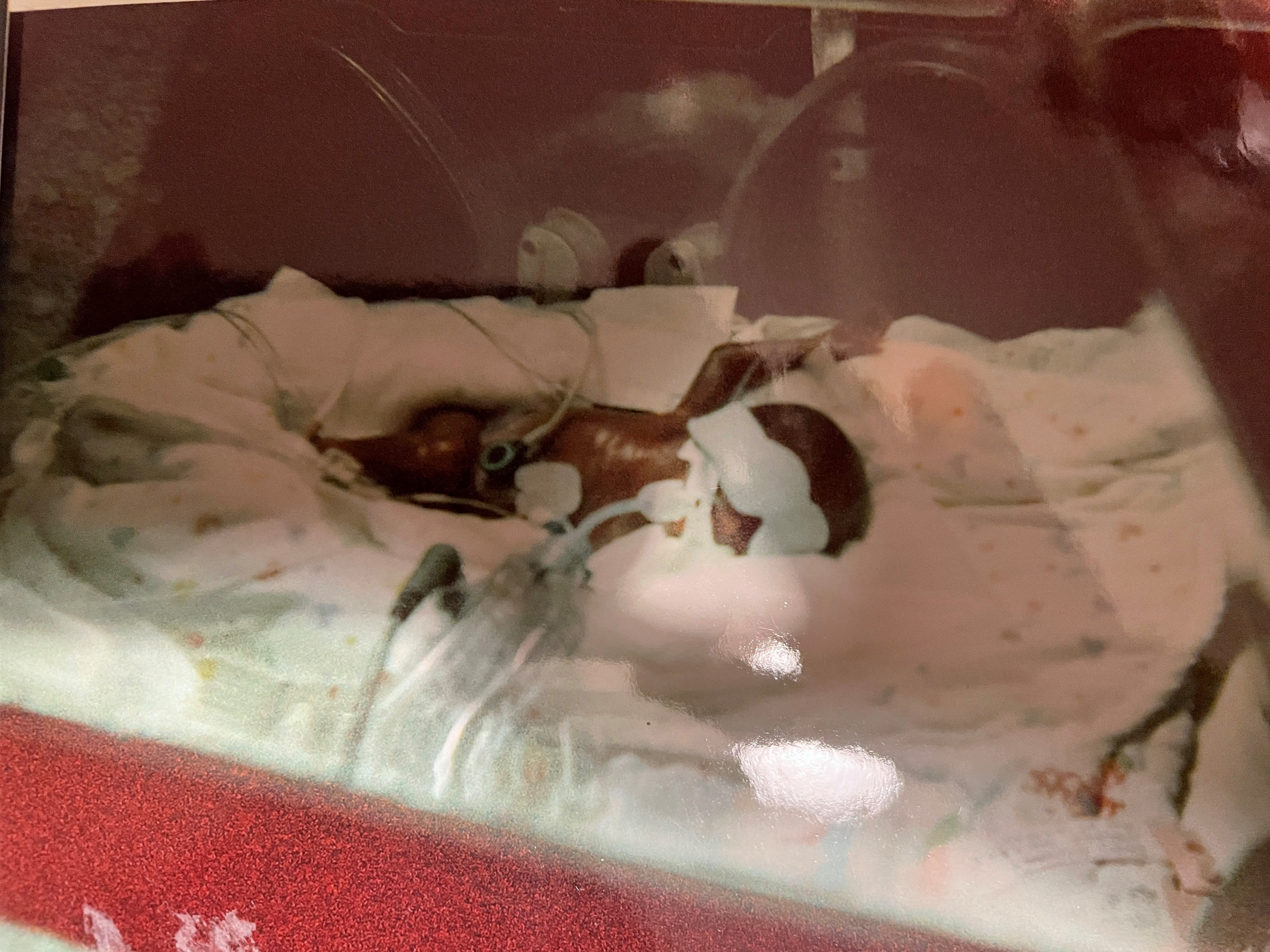Alisha's story
In her own words.

I didn’t really understand what an immense impact my premature birth had on my family, until I was 12 years old. I was in the loft of our house, and came across a big, clear box with a load of dust on it and a grey clasp handle. I cleaned off the dust and set it down on the loft floor. Inside, I found all the “artefacts” from my time in hospital, as a baby. It contained my tracheostomy, which is a breathing device that the doctors may give to a baby if they aren’t well enough to breathe on their own.
There was a newspaper article dated 12th February 2007, which contained very graphic information about the outcomes my parents might have to prepare for.
We had to discuss at times whether we would have to turn the ventilator off. At one point Alisha was given 5 days to live. We had to learn to say goodbye.
I vividly remember this quote. It has really stayed with me. My mum and dad never really made me feel like I’d been the cause of stress and worry for them, but when I spoke to my mum she opened up about the various difficult life and death decisions and conversations she had to have about her first child. A trauma that never leaves a mother.

An early start in life
I was born extremely prematurely at 24 weeks gestation. I spent almost the first two years of my life in NICU and PICU whilst being looked after intensively by the neonatal staff.
Amongst other things, I’ve been to Guys St. Thomas’s in London for a heart operation at 6 weeks old. I was also referred to Great Ormond Street Hospital (GOSH) in London to learn to swallow food properly. I have been an outpatient at Addenbrookes for 16 years, regularly visiting the eye, cardiology, respiratory, physiotherapy and countless more clinics. I am still under some services at Addenbrooke’s including the Audiology department for my hearing loss. I have had several heart and lung conditions, including Pulmonary Heart Disease, and Pulmonary Hypertension. Some of these problems have cleared themselves up on their own, which I’m very grateful about.
I’ve had to overcome a lot of physical and mental health challenges because of my early birth. These have included suffering with regular ill health, battling a bout of depression and intense bullying through school, years 3 to 10.
Why I got involved in the Cambridge Children's project
I initially became involved with the Cambridge Children’s project because of my own experiences in hospital and seeing for myself how services could have been improved. I have a big desire to help others so they can enjoy what I would’ve loved to see when I was a child in hospital.
In a small way, it’s also about me giving back to Addenbrooke’s whose staff have cared for me since I was born. I like to think of this as a fitting tribute to them for all their hard work and relentless hours they put in to saving not just my life, but countless otherlives as well.
It’s a dream to think that this new children’s hospital, the first of its kind in the east of England, is finally coming to fruition. It will be the hospital that changes children’s and families’ lives for the better and will be recognised all around the world for its innovation. I can’t wait for this hospital to open its doors. It will be an amazing and momentous day. I hope we, and all the future children who get to use its incredible services, will remember and cherish it forever.
Integrating care at Cambridge Children’s Hospital
I think the idea of treating a child’s mental and physical health together is a brilliant thing and will make the care process smoother and easier. Additionally, it will provide comfort and dignity for those who desperately need mental health services. Disguised as a “general hospital” will mean the child or young person won’t have the embarrassment of telling others that they are in mental health services. This could help a lot with the unfortunate but massive stigmatism that still surrounds mental health, particularly in some communities.



Improving my hospital experiences

Alisha and her little sister
Alisha and her little sister
If I could change three things about my hospital care, it would be having more age-appropriate things to entertain me, especially as I got older. Toys were for younger children, and the magazines on display weren’t appropriate for a young person to read.
Additionally, it would have helped if hospital staff wore clear face coverings. As a person who grew up deaf, I found it increasingly difficult to hear the doctors or nurses who looked after me. This is still an issue now and I rely very heavily on lip reading.
Finally, I would change the way doctors communicated information and treated me. I would’ve loved them to be more transparent and clearer about treatments and procedures. I wanted them to take me seriously and not treat me like 'just another patient’. As a child, there were several incidents where I wasn’t told what procedure I was going to have and why. That made me feel very confused and unsure about what was going on. If they had provided some information about my treatments, then I wouldn’t have been so confused and scared.
Alisha talks about her wishes for Cambridge Children's Hospital
Thank you Alisha for sharing your story

If you would like to join Cambridge Children's Network and take part in opportunities, like the Press Pack, we would love to welcome you!
